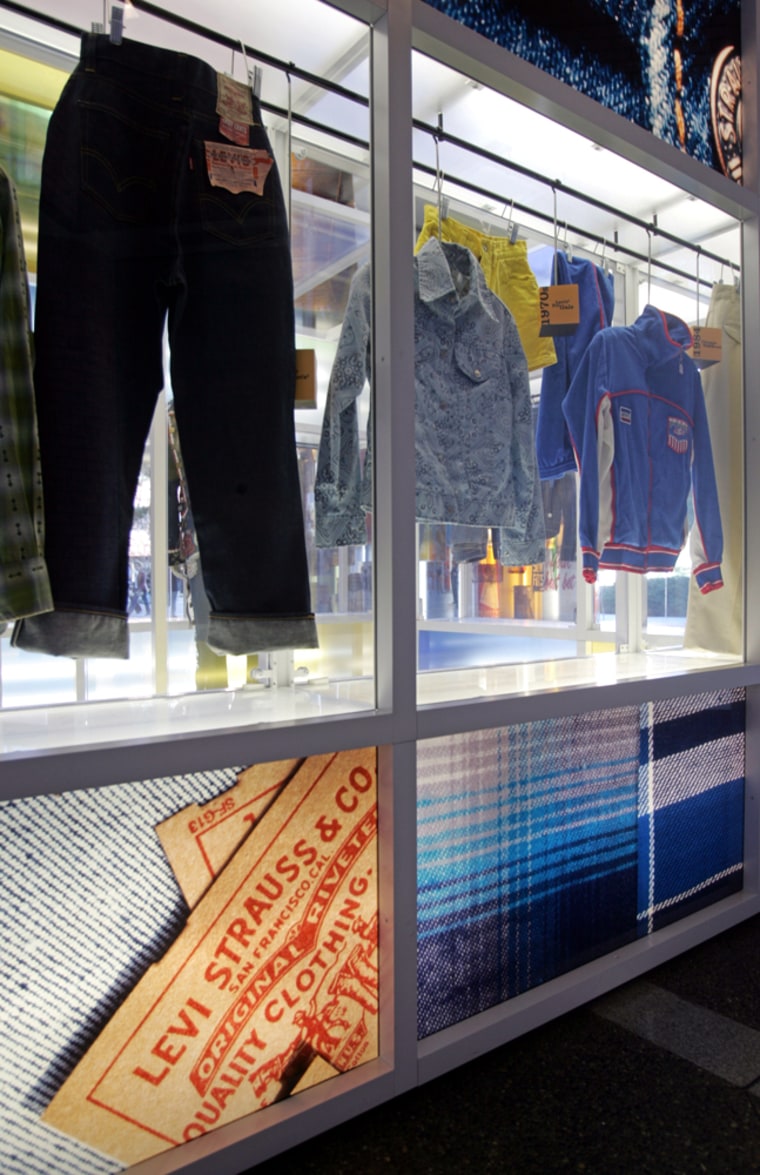Levi Strauss & Co. posted a fourth-quarter profit as the jeans maker ended an eight-year sales slide marked by fashion missteps, mass layoffs, plant closures and accounting troubles.
The San Francisco-based company said it earned $43.6 million during the three months ended Nov. 27, reversing a loss of $19.4 million at the same time in the prior year.
Levi’s fourth-quarter sales remained unchanged at $1.16 billion, but that was still enough for the company to increase its annual revenue for the first time since 1996.
For all of fiscal 2005, the company’s sales totaled $4.13 billion, up 1 percent from $4.07 billion in the previous year. Before the prolonged downturn, Levi’s annual sales stood at $7.1 billion.
Besides improving its sales, Levi’s also boosted its annual profit to $155.9 million, more than quintupling net income of $30.4 million in 2004.
“We accomplished our primary objectives,” said Phil Marineau, Levi’s chief executive officer.
Levi’s is privately held but discloses its financial results because some of its debt is publicly traded. The 153-year-old company is controlled by the Haas family — descendants of Levi Strauss, a Bavarian immigrant who launched one of the world’s best-known brands when he began making sturdy jeans for California gold prospectors.
The company has spent most of the past decade scrambling to survive as trendsetters shunned the Levi’s brand and cost-conscious consumers snapped up lower-priced clothing made overseas.
Desperate for help, the Haas family hired Marineau, a marketing expert from Pepsico Inc., in the late 1990s.
Marineau proceeded to close Levi’s remaining U.S. manufacturing plants and fired thousands of workers to cut costs. He also launched a discount brand called Signature that has become Levi’s growth engine.
But Marineau’s moves didn’t pay off right away and, to make matters worse, Levi’s auditors scolded the company for shaky accounting controls in 2004 after errors on past tax returns resulted in a series of financial restatements.
Two former Levi’s tax managers have been even more critical, alleging the company created illegal tax shelters in foreign countries. Levi’s has denied the allegations and countersued the former employees in a case scheduled for an October trial in a San Jose federal court.
Levi’s fortunes have improved since the company hired turnaround experts Alvarez & Marsal to assist Marineau. The company paid Alvarez & Marsal $15.1 million for the extra advice during 2004 and 2005, according to documents filed with the Securities and Exchange Commission.
The Signature brand, introduced in 2003, propelled Levi’s sales last year. The company’s U.S. sales of Signature clothing rose 7.4 percent to $361 million while U.S. sales of the larger Levi’s and Dockers brands dipped by less than 1 percent.
Despite Levi’s recent recovery, Marineau provided a cautious outlook, warning the planned closures of May’s and Mervyns stores will create “very challenging” conditions through the spring. “It’s a bump in the road we have to get over,” Marineau said during a Tuesday interview.
Levi’s is hoping to spur more sales by opening about 20 of its own stores this year, more than doubling the 18 currently operated by the company. Levi’s already has lined up locations in California, Nevada, Rhode Island, North Carolina and Washington, D.C.
